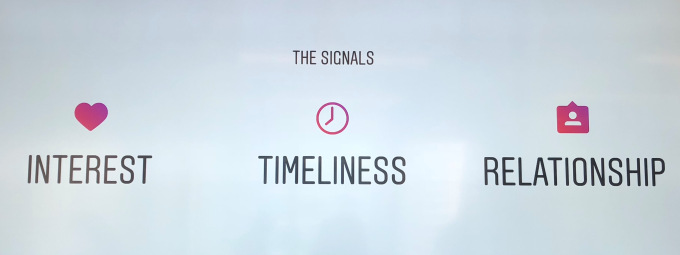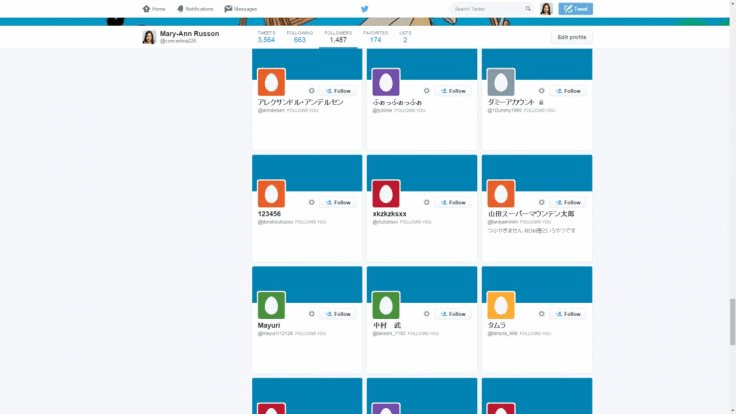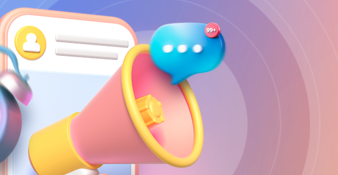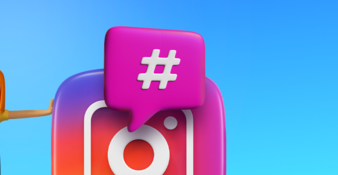How fake accounts on social media affect you

We all know how social media works. Or do we? Let me remind you.
How do social media algorithms work?
Every social media platform has an algorithm by which it determines what to show to the end-user (that's you).

The algo is personalized: through the years that you've used the social media platform, it has learned your interests, views, and values by tracking what you view, like, comment on, and share. Now it shows you the posts, ads, and news that reflect your interests. Every time you log in and engage with the platform's content, the algorithm improves. Its learning curve never stops.
On most platforms, you can download what it has on you and look through the data to know how the algorithm sees you. I explained how to do this with Facebook in the article What does Facebook really know about you (and what to do about it). Take a look if that's something that bothers you. You'll learn a lot about yourself. For example, a part of my Interests section looked like this:
.png)
which completely aligns with my real interests. However, the section also included witchcraft, which left me puzzled. Additionally, I was rated as "Starting Adult Life", which is almost relieving at 26.
Interest is the most important factor in most social media platforms' algorithms. Another important factor is the overall popularity of the post.
And that's when we first face fake accounts. Fake accounts can "like" a post with all their massive account base, giving it more and more weight. When the post is popular enough, the algorithm starts suggesting it to your friends and yourself, inviting more likes and comments. In this case, even angry comments will push the post higher up in your feed. Most social platforms don't care for the sentiment of the comment - at least for now. It's the number of comments that plays a role in how many people will see the post.
But "likes" isn't the only way for fake accounts to affect what you see on social media.
They also create content. Bots can post hundreds of times per day, completely transforming the perceived trends, dominating topics of conversation, and dominating public opinion on social media. Because of the fake accounts, the perceived majority is created - a majority that doesn't exist in real life.
Why do fake accounts exist?
Fake accounts serve very different purposes: they are used to stirrup political quarrels, spread fake news, create division and distrust. They can promote disinformation about brands to mislead customers. They can promote disinformation about famous people. The issue per se isn't always the main reason for fake accounts to appear. Fake accounts and fake news cover all popular topics, from Black Lives Matter to COVID-19. For example, the MIT Technology Review revealed that between 45% and 60% of all accounts pushing to reopen America are bots.
While we can guess some goals for the existence of fake accounts (e.g., promoting a presidential candidate or promoting a specific product), often it looks like there's no end game other than creating chaos. But of course, the fact that the goal isn't always clear doesn't mean that we can ignore what they do to our minds.
It's not just that fake accounts affect what we see on social media, filling up the feed with their posts and pushing the posts of our friends and real people down the feed. It's also that they affect the perception of the information.
How do fake accounts affect our behavior?
Most of us are self-assured enough to believe that the number of "likes" on the post doesn't influence our behavior. But it does, and the reason for that is the phenomenon called social proof.
Social proof implies that we use other people to determine what is correct. We believe a product is good when it's been approved by other people. We believe the cause is valid when other people behave like it is. This isn't some kind of illogical behavior: in most cases now and throughout the evolution, the best way to judge an appropriate behavior has been by looking at how others behave. However, it's a mental shortcut that allows room for error. Studies have shown over and over again that people are affected by social proof: in situations such as returning a lost wallet, littering in a public place, donating funds to charity, approaching a frightening dog, engaging in promiscuous sexual activity in a “safe” versus “unsafe” manner, and in many other situations (source).
The most important thing when it comes to social proof is its volume. One or two unknown people telling you what's right might not affect you, but a thousand will. Ten fake likes on a post won't make a difference, but a thousand will force you to at least check it out. Similarly, it's been shown that the amount of reviews has a bigger effect on a customer than the sentiment behind reviews. Just a simple fact that many people have used the product influences potential customers into giving it a chance.

There are five different types of social proof: "expert social proof", "celebrity social proof", "user social proof", "wisdom of the crowds", "wisdom of your friends". Fake accounts tap into the "wisdom of the crowds" social proof, telling you people have tried and liked this post/product/service/value, and you should too.
Do fake accounts matter for your brand?
The short answer is yes. It's not just your personality that can be affected by fake accounts, it's also your brand.
If you look through your followers on social media platforms, you'll notice that some of them are fake. In most cases, it's clear from their posting history or lack of thereof. At a first glance, they increase the perceived number of followers and don't cause any trouble. At a closer look, that's just not true - they cause a lot of trouble.

Fake followers don't interact with your posts, lowering your overall engagement rate. They clutter your following and have a good chance of damaging your credibility if someone will feel meticulous enough to start looking into this. They also make it harder to segment your audience and create effective advertising campaigns on Facebook, Twitter, and Instagram.
It's never a problem if you have a hundred followers - a couple of fake accounts won't damage anything, and it's also easy for you to find them and set them free. For brand accounts with thousands and tens of thousands of followers, on the other hand, that might be tricky. If you have one of those popular brand accounts with a good following, firstly, congrats! and secondly, I suggest scanning your social media account with the right tools to get rid of fake followers.
How to save yourself from being affected by fake accounts?
Knowledge is power.

Firstly, being aware of the bias that is social proof will force you to stop and evaluate your feelings once in a while. Being aware of fake accounts will make you check the sources and the dates of the posts, as well as the posting history of the unknown accounts.
Secondly, choose to catch up with your friends in particular, rather than endlessly scrolling the default feed. Among other benefits, this will make your social media usage less addictive.
And finally, know the trolls' favorite topics. These are usually the current most loud and most sensitive topics: health issues, elections, wars, political and social movements. Don't take part in the online conversations that seem just too ridiculous in their absolute opinions. Don't feed the trolls!
By signing up I agree to the Terms of Use and Privacy Policy













